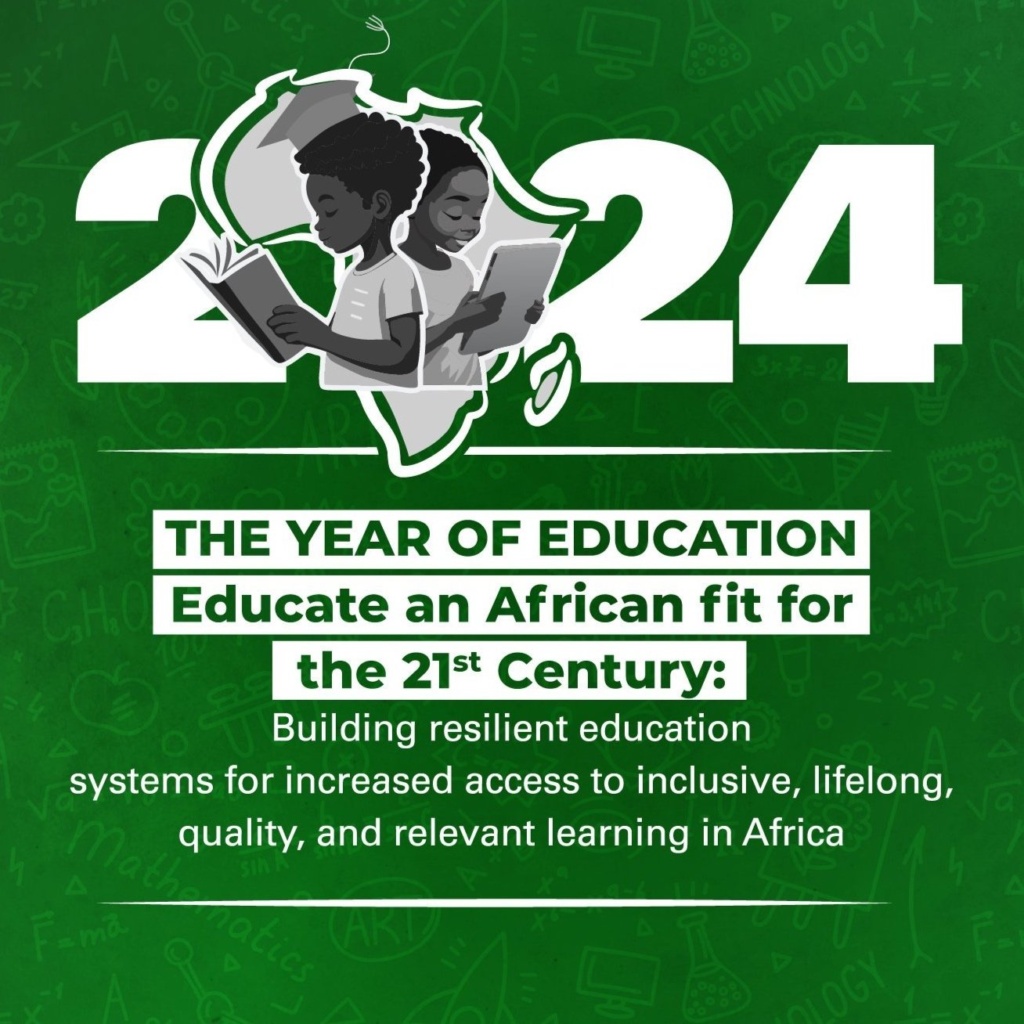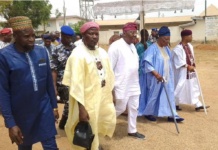
By Olakunle Agboola – The African Unity (AU) has long been committed to advancing education across the African continent. In 2024, amid ongoing challenges in Africa, the AU is taking steps to rebuild and strengthen education systems.
Africa’s education sector has faced a few challenges over the years, including inadequate infrastructure, limited access to quality education, disparities between urban and rural areas, and inequalities based on gender, socioeconomic status, and disability. As the COVID-19 pandemic intensified these challenges, millions of students were disrupted, and innovative solutions were urgently needed.
Education has been a catalyst for economic growth and development, serving as a cornerstone of human capital formation and productivity enhancement. A well-educated individual will have greater opportunities to contribute to the workforce, innovate, and adapt to changing market conditions. Additionally, education yields broad-based benefits for society, including increased incomes, improved health outcomes, and lower poverty rates.
A sustainable economy can only be achieved in Africa if inclusive education is prioritized. To ensure comprehensive education, AU launched several initiatives to rebuild and transform education in Africa beyond 2024.
Affordable infrastructure investment
The AU is working with member states and international partners to invest in infrastructure improvements, including the construction of schools, provision of textbooks and learning materials, and expansion of access to digital technologies.
Training and capacity building for teachers
A priority for the AU is teacher training and professional development programs, which recognize the crucial role teachers play in providing quality education. The objectives of these initiatives are to enhance teaching methods, promote inclusive practices, and provide educators with the skills required to support a variety of learners.
Promoting inclusive education
The AU is committed to promoting inclusive education policies that prioritize equity, diversity, and inclusion. A key part of this is addressing the barriers faced by marginalized groups such as women, refugees, and children with disabilities, as well as ensuring that quality education is available for all.
Digitization of education
Leveraging the potential of digital technologies, the AU is supporting the expansion of digital learning platforms and resources. This includes the development of online courses, educational apps, and virtual classrooms to reach learners in remote and underserved areas.
Partnerships and Collaboration
The AU has partnered with governments, civil society organizations, academia, and the private sector to address educational challenges, recognizing the need for coordinated efforts. To achieve greater impact and sustainability, stakeholders can leverage their expertise and resources by working together.
Looking beyond, the AU envisions a future where every African child has access to quality education that empowers them to reach their full potential. Prioritizing investment in education, promoting inclusive and equitable policies, and harnessing the transformative power of technology, the AU aims to build a brighter future for the continent’s youth as they can contribute to Africa’s sustainable development and prosperity.
The AU’s commitment to rebuilding education in Africa reflects its dedication to advancing the rights and well-being of all Africans. Through targeted initiatives, partnerships, and a shared vision for the future, the AU is working to ensure that education remains a cornerstone of Africa’s development agenda, unlocking opportunities and transforming lives across the continent.
Kindly follow us on twitter:@AfricanVoice2









